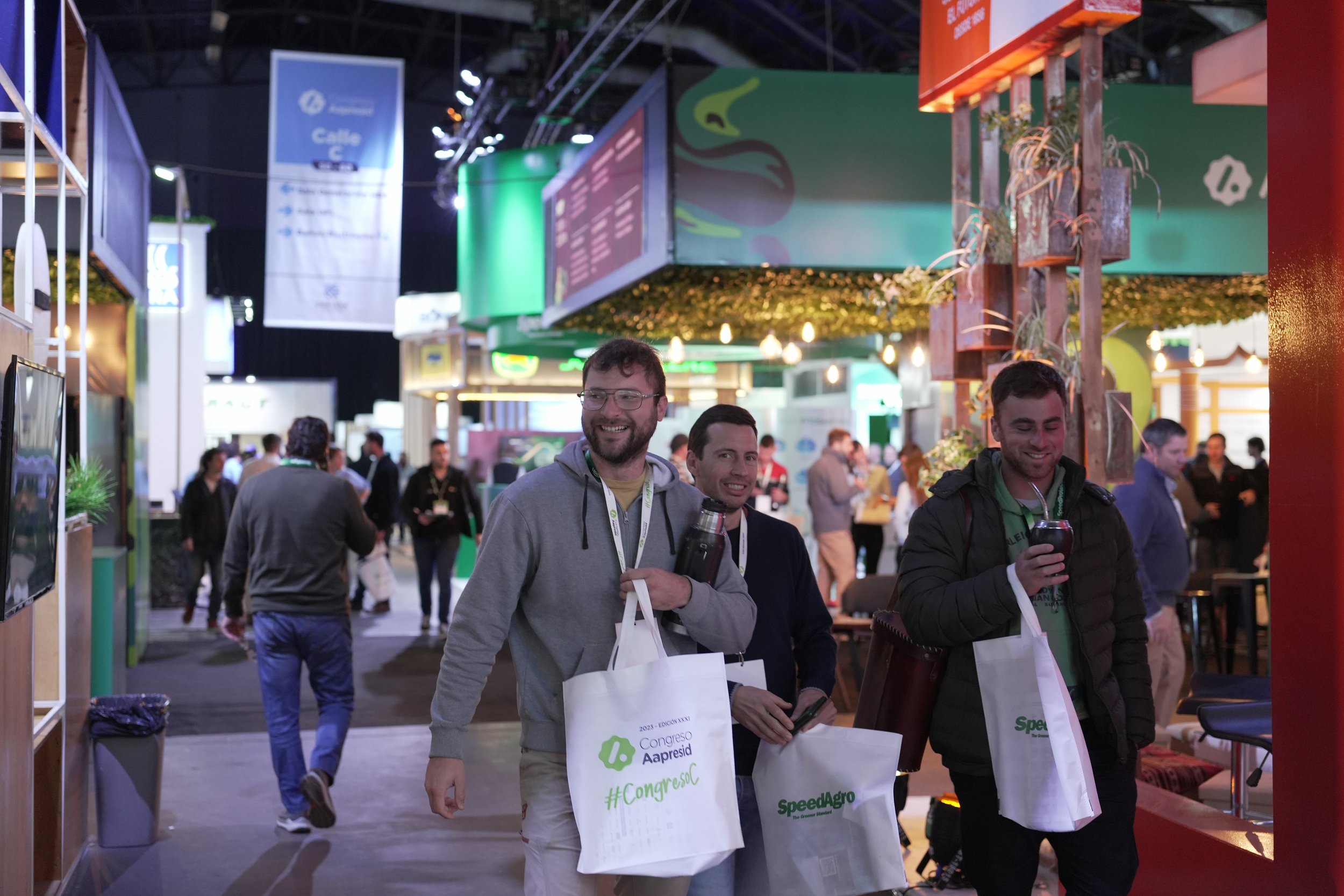The XXXI Aapresid Congress reported a record turnout
Story and photos courtesy of Aapresid
From 9-11 August 2023, attendees of the XXXI Aapresid Congreso in Argentina enjoyed an event where sustainability, innovation, and agricultural trends were the main characters.
Setting record attendance for the event, the Argentine No-till Farmers Association (Aapresid) XXXI edition of its annual “C, a life element” Congress gathered renowned national and international mentors and professionals from the farming sector. Led by companies and agricultural producers, more than 7800 people from all around Argentina, and the World, visited the different halls and stands at the event.
Marking a key theme of discussion, Aapresid and Syngenta shared the first results of a new study that indicates that agricultural lands are only at 46% of their soil organic carbon (SOC) sequestration capacity. They presented a map with valuable information about Argentinian soils’ potential to increase SOC stocks from 46% to 56%, which could mean mitigating between 50% and 64% of emissions related to agriculture.
“Leading this project alongside Syngenta is very important since it will allow us to know where we stand in relation to SOC levels and what values we can achieve in each region,” said Marcelo Torres, Chair of the Argentine No-Till Farmers Association. “On the other hand, it is key to understand how we can adjust strategies to maximize sequestration in every environment (intensification level, diversification, nutrition, etc.).”
“Following that path, the contribution of Aapresid producers that have been employing methods related to sequestration is essential because it leads the way toward that desired ‘possible’. Finally, this project will facilitate the creation of tools to guarantee our role concerning climate change mitigation and our position in the world,” added Marcelo Torres.
Alongside the Congress, the XXV International Oilseed Producers Dialogue (IOPD) took place as a side event gathering all oilseed producer association representatives from main producer countries, representing products such as soybean, sunflower, canola, and rapeseed. Focusing on the challenges faced by the international industry, numerous discussions emphasized policies and regulations, market access, and the future of the oilseed industry.
Broadly, the IOPD agenda combined panels addressing relevant worldwide matters in the oilseed sector, along with sections destined to report novelties in every IOPD participant country. Each country's presentation included current news, technological advances, and sector challenges in every national context in particular.
Participants in this meeting included: American Soybean Association (ASA), U.S. Canola Association and U.S. Soybean Export Council (USSEC), Argentine No-till Farmers Association (Aapresid), Paraguayan Grains and Oilseed Traders Association (CAPECO in Spanish) and Asociación de Productores de Soja, Oleaginosas y Cereales (APS) from Paraguay, Associação dos Produtores de Soja e Milho (Aprosoja) and Associação dos Produtores de Soja e Milho de Mato Grosso (Aprosoja Mato Grosso) from Brazil. Furthermore, the Australian Oilseeds Federation (AOF), the Canadian Canola Growers Association (CCGA) and Grain Farmers of Ontario (GFO), the Fédération française des producteurs d’oléagineux et de protéagineux (FOP) from France, the Mesa Tecnológica de Oleaginosos (MTO) from Uruguay, the National Farmers Union (NFU) from Australia, and the Union zur Forderung von Oel und Proteinpflazen (UFOP) from Germany.
Another highlight was that, within the panel, the Latin American Cooperation for Sustainable Agriculture, the Confederation of American Associations for Sustainable Agriculture (CAAPAS), and the Inter-American Institute for Cooperation on Agriculture (IICA) signed an agreement for technical cooperation. The agreement aims to design and enforce actions that allow coordination and interaction for improvement in the continental agrifood sector through sustainable and regenerative agriculture, no-till systems, soil conservation, and practices that help improve both yields and quality of life of rural dwellers.
CAAPAS is composed of Aapresid, the Brazilian Federation of No-Till Farming (FEBRAPDP), the Mexican Association of Conservation Tillage (AMLC), the Uruguayan Association for no-tillage (AUSID), and the Paraguayan Federation of no-tillage for sustainable agriculture (FEPASIDIAS). CAAPAS members have been working for the last 30 years on the promotion, development, intensification, and improvement of the no-till system at the national and international levels. Their work has stimulated and carried out all types of research, training, and technical and scientific economic studies. They are focused on increasing knowledge about soil, its care, its development, and its impact on the environment, emphasizing the dissemination, growth, and continuous updating of no-till methods.





